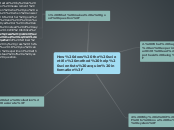How does the scientific method help scientists acquire information?
2. What happens when an experiment doesn’t lead to a hypothesis being supported?
Then they try again or get a different answer.
They can change the independent variable, or change a few things in the experiment, so let's say you’re dropping a bouncy ball to see how high it will bounce up, the farther you drop it from (Independent variable) the higher it will bounce up (dependant variable). Ex: Question, Hypothesis, Experiment, Analysis, Conclusion.
When we don’t get something right we try again we don’t give up.
4. Why is it important to know the metric system?
You need to know it to convert things easily, plus it’s faster.
You won’t need to google everything when you need it, sometimes you won’t be able to use google to convert it, because most places won’t let you, you need to know the order and the prefix for it, Kilo Hecto Deka BASE Deci Centi Milli, it takes less time to search it and it's easy
College you can’t just google something for a test, you have to know it.
1. What makes a good question?
A good question can have an answer and be tested.
Can be tested by an experiment or measurement, builds on what you already know, when answered leads to other good questions, and it isn’t a yes or no answer, so instead of saying, “Will fertilizer make my grass grow?” you would say “What type of fertilizer will make my grass the greenest?” you can make an experiment with that instead of a yes or no question.
When people ask me good questions they tend to sound smarter.
3.How can data collection be more accurate?
Use lots of details explaining it.
If you just say I got 12 when you really got 12.3028 that can be confusing for people so you should be more specific, or when you have the number .00092 there's only two significant numbers here because the three 0 after the decimal are only locating it so it’s insignificant.
When you are in math class and everyone got answers like 18.99989 or 19 you should use the specific answer so you don’t get it wrong.
